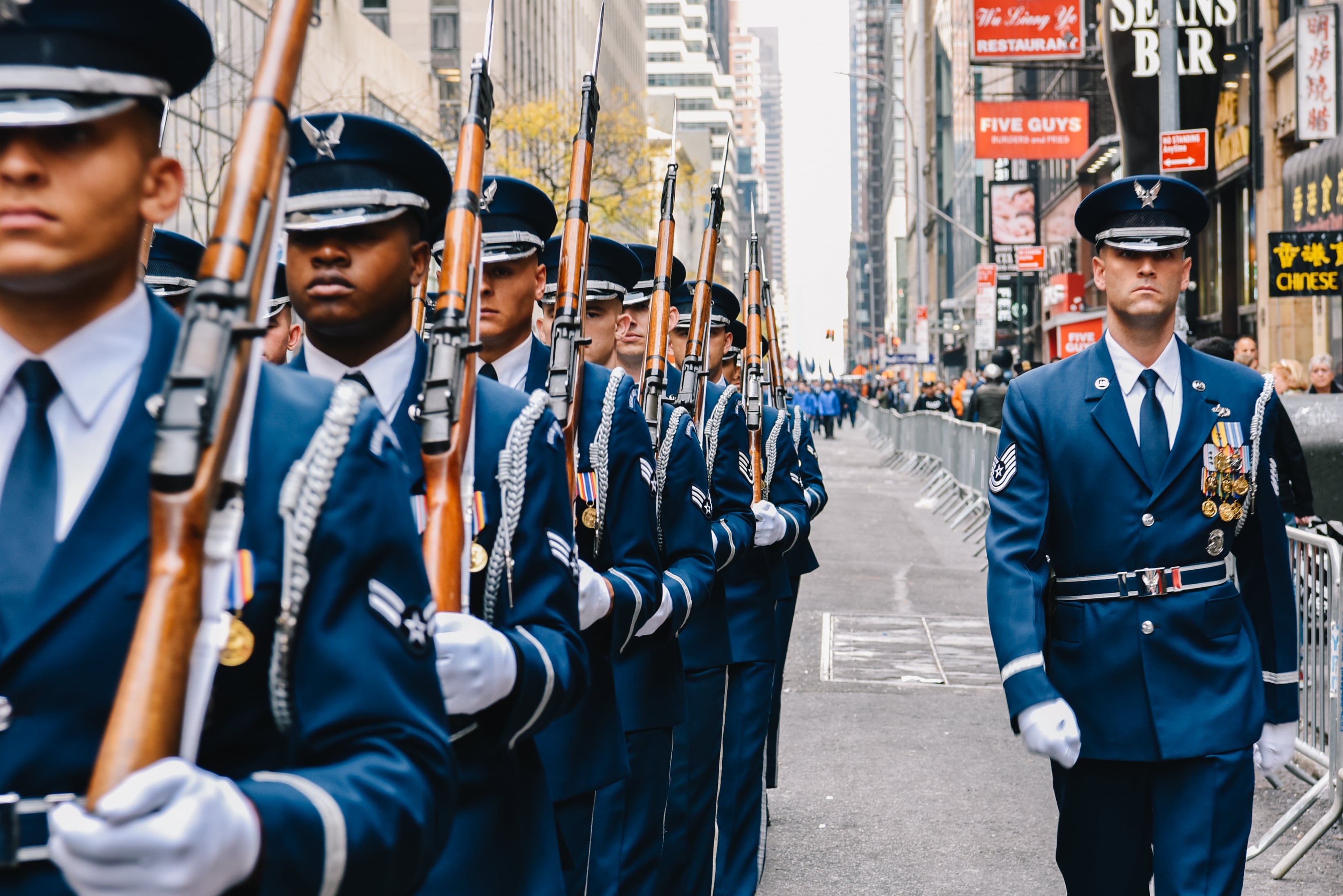source GAIA package: Sx_MilitaryTimes_M6201010010110322_5675.zip Origin key: Sx_MilitaryTimes_M6201010010110322 imported at Fri Jan 8 18:18:04 2016
Nearly one in three Marines are so afraid of violating the Corps' strict weight and appearance standards they have resorted to extreme weight-loss methods, including starvation, taking laxatives and undergoing costly liposuction surgery, according to a recent study conducted by two Marine officers while attending the Naval Post Graduate School.
But the rate may be much higher than that, said Capt. Paula Taibi, one of the study's co-authors. More than 70 percent of the 390 Marines who responded to her survey were from the junior enlisted and officer ranks — and not long out of boot camp or Officer Candidate School. If so many first-term men and women in peak physical shape are using risky means to blast fat and avoid the measuring tape, she said, then a lot of career Marines with far more to lose probably do it too. The report concludes that unconventional methods for weight loss are "widespread" within the Marine Corps.
The trend, Taibi said, likely predates revisions made in 2008 to the service's body composition and military appearance programs, or BCP and MAP. The move eliminated the leniency once shown to Marines who run afoul of body-fat standards but still score high on their physical fitness test. There has almost certainly been an uptick in risky weight-loss methods since then, however.
"I think people are being made more aware that they are going to comply and that if they don't, the results are going to be catastrophic to their career," said Taibi, who co-authored the 2009 report with Capt. Leigh Wallace and is now a programs analyst at Headquarters Marine Corps. "So I think people are grasping."
The commandant's office cast doubt on the findings, saying the sample size is neither large enough nor diverse enough to accurately represent how widespread the trend may be. Maj. Joseph Plenzler, a spokesman for Gen. James Conway, said the Corps' top officer stands by the updates made to the BCP and MAP. While the commandant encourages Marines to be smart about how they stay trim, looking the part is vital to combat readiness and good order and discipline, he said.
"We Marines have historically held ourselves to high standards in both fitness and appearance," Plenzler said. "There are some Marines who may meet all established physical standards, yet fail to present a suitable military appearance, and this is inconsistent with the Marine Corps leadership principle of setting the example."
Tough standards, risky choices
Marines may not all agree with that logic, but they understand the consequences of failing to make weight. The policy adjustments made on Conway's watch give commanders greater freedom to assign personnel to remedial training if their uniformed appearance does not fit that of a squared-away Marine, according to All Marine Message 034/08. For more senior Marines, that can be the kiss of death.=
Commanders have the power to request a waiver for Marines who do not meet the Corps' standards but look professional in uniform. It's unclear how often waivers are granted, but in the past Conway has advocated for rigid enforcement of the rules.
Current body-fat limits for Marines start at 18 percent for men and 26 percent for women. Those limits increase slightly with age, up to 21 percent for men and 29 percent for women. Before the Corps tightened the rules, Marines with first-class PFT scores could slide a few percentage points. Now, no matter how capable a Marine is physically, there are no exceptions.
Once a year, or more often if a commander deems it necessary, Marines are assessed based on the body mass index, an equation that determines ideal weight relative to a Marine's height. If a Marine is deemed overweight, he then has measurements taken around his neck and waist to estimate body fat percentage.
In 2007, the Marine Corps inspector general suggested the service adopt a new measurement method. It called taping "adequate," but acknowledged it was prone to inaccuracies. Other methods could prove more equitable, the IG said.
That inquiry found that one in four Marines failed to meet standards and belonged in the BCP, prompting Conway's crackdown.
Despite tougher standards, thousands of Marines are still assigned to the BCP each year — 5,671 since October, according to Manpower and Reserve Affairs. That's the most since 2006. So far this year, 72 Marines have been discharged for weight-related issues.
"There was a staff sergeant I knew and he was outstanding. The only reason he got out of the Corps was because of the new weight standards — even though he would PT with Marines every day and usually drop about half of them," said a gunnery sergeant at Camp Pendleton, Calif., who underwent liposuction in June. Even though the Corps allows Marines to have the procedure, he asked not to be identified, saying there's a stigma associated with failing to meet fitness requirements.
"I know an officer," he said, "who in order to make weight wore sweat suits, didn't eat for a week, took pills and used enemas."
With about five years left until he's eligible for retirement, the gunny said he was willing to take such a drastic measure to stay out of the BCP and — he hopes — save his career.
The gunny has struggled for years to meet weight and body fat requirements, but regularly posted first-class PFT scores, he said. Then he suffered a back injury in Iraq, and making weight only got tougher. He had surgery on his back this year and packed on some extra pounds during his recovery. Although he has never been on the BCP in the past, the devastating prospect seemed inevitable as his medical review board loomed and he struggled to drop enough weight before his weigh-in.
The decision to get liposuction on his abdomen was easy.
"I felt it was pretty much a do-or-die situation," he said.
It was an expensive procedure, about $7,000, but well worth it to save his career, he said. The recovery was swift — about two weeks — and he is pleased with the results.
The gunny wants Conway or his successor to reverse the new policy and again allow Marines some leeway provided they look OK in uniform and prove they are combat ready with high scores on the PFT and Combat Fitness Test.
"I know there are others out there in the same boat or who have a stocky build so they are always fighting the scale or tape," he said.
Most career Marines interviewed by Marine Corps Times said being put on the BCP is certain to scuttle their chances for advancement.
"It is probably easier to recover from a DUI than from being put on BCP," said Gunnery Sgt. Matthew Torres, another Camp Pendleton-based Marine who has never been assigned to a remedial fitness program, though he, too, struggles with stubborn belly fat. "A DUI is bad, but it's a one-time thing. You just don't do it again. Once you're on BCP, you're probably already on your way out."
Torres said he's been seriously considering liposuction for more than a year but still has reservations. He runs religiously and has cleaned up his diet, he said, but the slight paunch around his gut just won't go away. If he can't drop enough weight before his next weigh-in, he's afraid it will mark the beginning of the end.
Torres believes he is at risk because of his small, muscular stature. The rules don't account for body type, he said. And that's frustrating. Current standards allow Marines less able-bodied than he to fly below the radar.
"I'd much rather have a guy who has a little meat on his bones that can pick somebody up in a firefight, than somebody who is supermodel skinny and can't pick his pack off the ground," he said. "It seems like the Marine Corps wants these super-skinny kids who can't lift themselves over a wall."
Most Marines who consider liposuction aren't out of shape, said Dr. Robert Peterson, a Hawaii-based plastic surgeon who runs the Athena Clinic in Honolulu and has operated on many service members.
"We mostly see Navy because many of them work long shifts on boats and submarines where exercise is difficult," Peterson said. "But we do get Marines. When we see them, they are usually fit. They just have a spare tire."
Like other plastic surgeons located near military installations, Peterson advertises his services to service members — and even offers a $500 discount on procedures that cost $5,000 or more. For many of his patients, the payoff comes in getting to keep their job, he said.
Asked about potential risks to getting liposuction, Peterson said it is a relatively safe procedure and none of his patients have had major complications. But risks do exist, including infection, damage to surrounding tissue and blood vessels, and uneven skin texture.
Other rare but possible complications, according to the National Institutes of Health, include blood clots. Liposuction also can cause tiny globules of fat to be released into a patient's bloodstream, which can cause potentially fatal embolisms in the lungs, brain or elsewhere.
Liposuction is by no means the only risky weight-loss method Marines are using, according to Taibi's study. Some resort to starvation and fasting, extreme cardio, and the use of plastic sweat suits, diet pills, diuretics and laxatives. Some forgo water. Some give blood.
Highlighting just how dangerous some unconventional weight loss methods can be, one poolee trying to drop weight so he could join the Corps died from hyperthermia and dehydration in July 2009, while training with two recruiters in Tracy, Calif.
Daniel Ruf, 22, collapsed at a local gym while wearing a rubber suit. He was trying to drop 10 pounds the day before his weigh-in. Ruf's case is now a source of ongoing litigation. His mother filed a lawsuit against the Marine Corps in April.
These methods aren't only hazardous to your health, Taibi said, but the resulting weight loss is often only temporary.
"In my opinion it's a really vicious cycle," she said. "You do all these crazy things — run with plastic bags on your chest or whatever. Then you make weight and it's a big release, so you let yourself go again."
There are reports of Marines employing risky weight-loss techniques in Afghanistan. Sgt. Shane Trefftzs, who works in the operations division of I Marine Expeditionary Force (Forward), told Marine Corps Times that after his command announced a weigh-in, others in his unit scrambled to shed weight any way they could. Some took diuretics, laxatives and diet pills and fasted.
"We're in a combat zone. Is this a smart idea?" he wrote in an e-mail. "I totally agree with a standard for military appearance. However, many of us remember some of the first words out of our Drill Instructor's mouth. 'Marines come in all shapes and sizes.'"
'Look like' vs. 'can do'
Fitness expert Tony Horton, the creator of P90X, the latest workout craze to sweep the military, agreed that body type can significantly affect how a person weighs in. He emphasizes functional fitness, and believes traditional health assessment methods — including those used by the Defense Department that are based on height-to-weight ratios and taping around the neck and belly — don't accurately measure a person's overall health.
Body mass index doesn't "dictate a person's abilities or strength," Horton said. "There is 'look like' ... and there is also 'can do.' ... Can a guy perform? If you are strong, and you are fit and flexible, and you can do your job ... who the hell cares what your waist size is?"
"Some people just have a very unfavorable ratio of the abdomen to their neck even if they are in shape," echoed Peterson, the plastic surgeon. "That's our most common group — people who are not designed for the particular measurement," he said referring to the DoD-prescribed taping method for estimating body fat. "If they did a different measurement, they would come out fine."
Dr. Jules Feledy, the senior partner at Belmont Plastic Surgery, which has offices near Marine Corps Base Quantico, Va., said he has seen a rise in the number of Marines coming through his office since Conway tightened standards in 2008. The Marines he sees are typically in superior shape, he said, but desperate to flatten their midsections as they look to beat the tape — a measurement he, too, believes doesn't dictate a person's physical abilities.
But the Corps' regulations do have plenty of supporters. Despite her findings, even Taibi says the standards are fair.
"It is important to note that Marine Corps body composition and military appearance standards are neither unreasonable nor unattainable," said Plenzler, Conway's spokesman. "It is the responsibility of every leader in the chain of command to coach and mentor their subordinates, and hold them accountable when they fail to meet standards."
The majority of overweight Marines simply need to adjust their diet and exercise regimen, Taibi said. Marines' struggle with weight and body fat parallels a national trend, she said. Based on her research, the Corps needs to bolster outreach to ensure Marines use resources already available through the Semper Fit program, which was developed to educate Marines on maintaining a healthy lifestyle and making sound fitness choices while providing them with the resources to stay in shape. It is important to ensure that healthier food choices are available on base, she said.





